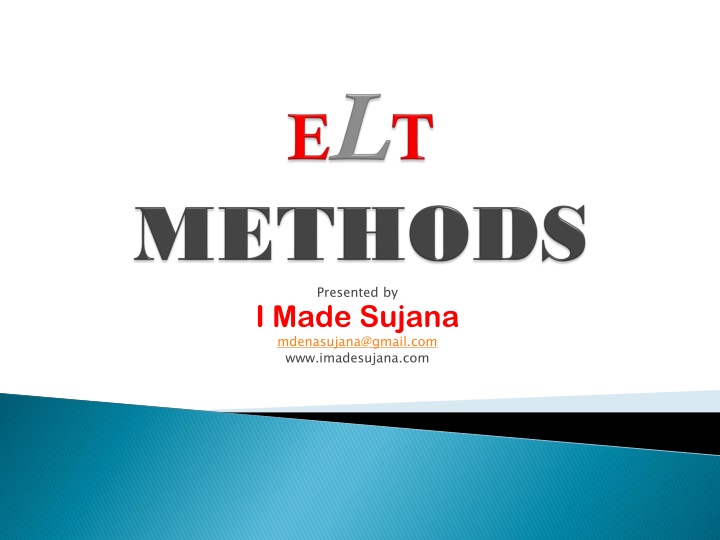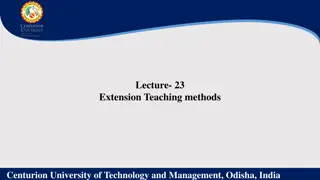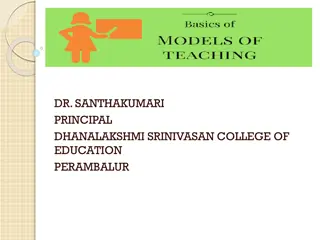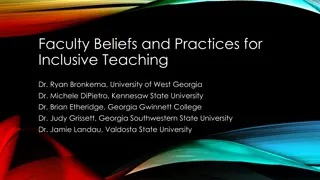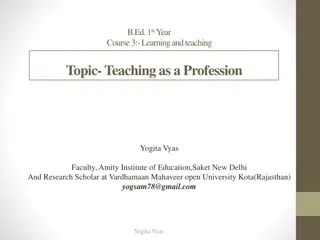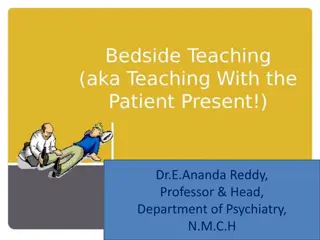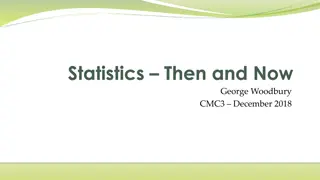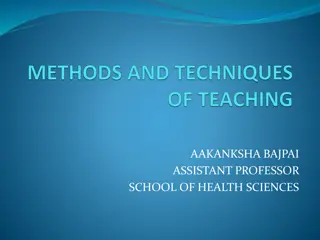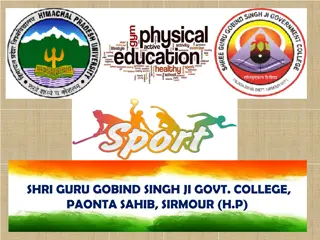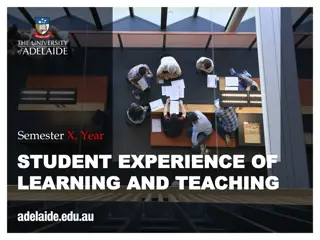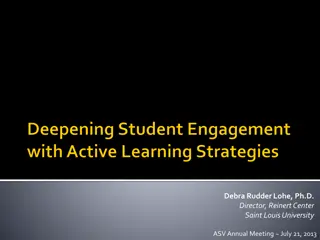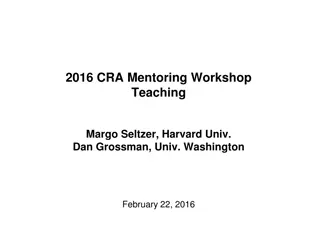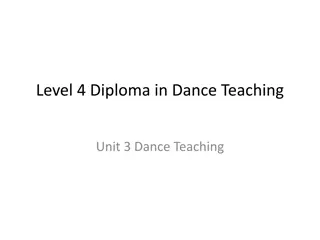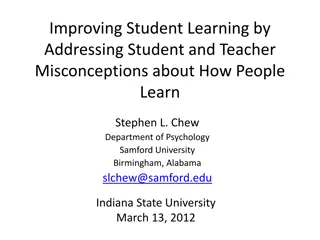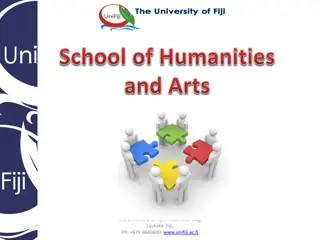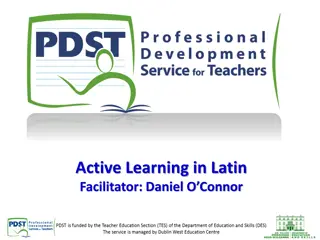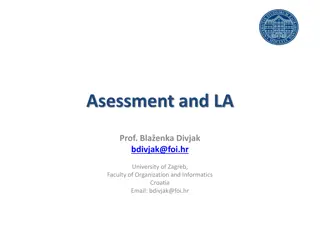Enhancing Teaching Methods for Effective Learning
Enhance teaching methods for effective learning through interactive, motivating, and inspiring processes. Incorporate scientific approaches and core competencies to achieve educational standards. Implement genre-based and inquiry-based instruction, cooperative learning, and problem-based learning approaches. Utilize teaching-learning cycles for both spoken and written communication.
Download Presentation

Please find below an Image/Link to download the presentation.
The content on the website is provided AS IS for your information and personal use only. It may not be sold, licensed, or shared on other websites without obtaining consent from the author.If you encounter any issues during the download, it is possible that the publisher has removed the file from their server.
You are allowed to download the files provided on this website for personal or commercial use, subject to the condition that they are used lawfully. All files are the property of their respective owners.
The content on the website is provided AS IS for your information and personal use only. It may not be sold, licensed, or shared on other websites without obtaining consent from the author.
E N D
Presentation Transcript
Presented by I Made Sujana mdenasujana@gmail.com www.imadesujana.com
Upon completing the 2-hour meeting, the participants of the training are able to select and apply various teaching methods in their teaching appropriately
Interactive Motivating Inspiring Process Standards Challenging Joyful Reflection: Has your teaching fulfilled those standards?
Involvement of Scientific Approach in teaching & learning process Achievement of 4 Core Competencies (KI 1 KI 4)
Questionin g g (menanya) Questionin Experimen ting (mencoba) Experimen- - ting (mencoba) Networking (membentu k Jejaring) Networking (membentu k Jejaring) Associating (menalar) Associating (menalar) Observing (mengamati) Observing (mengamati) (menanya) 5
Menghargai dan menghayati ajaran agama yang dianutnya KI 1 Menghargai dan menghayati perilaku jujur, disiplin, tanggungjawab, peduli (toleransi, gotong royong), santun, percaya diri, dalam berinteraksi secara efektif dengan lingkungan sosial dan alam dalam jangkauan pergaulan dan keberadaannya. KI 2 Memahami pengetahuan (faktual, konseptual, dan prosedural) berdasarkan rasa ingin tahunya tentang ilmu pengetahuan, teknologi, seni, budaya terkait fenomena dan kejadian tampak mata. KI 3 Mencoba, mengolah, dan menyaji dalam ranah konkret (menggunakan, mengurai, merangkai, memodifikasi, dan membuat) dan ranah abstrak (menulis, membaca, menghitung, menggambar, dan mengarang) sesuai dengan yang dipelajari di sekolah dan sumber lain yang sama dalam sudut pandang/teori. KI 4
How to realize those concepts in the application of ELT Method?
Genre- Based Approach Inquiry- Based Instruction Cooperative Learning Methods /Approach Suggested Project- Based Learning Discovery Learning Problem- Based Learning
Teaching Learning Cycles (TLC) Spoken Cycles Written Cycles Each Cycle consist of BKOF MOT JCOT ICOT
Learning Stages in IBI (Permendiknas 41/2007) Exploration Elaboration Confirmation
Models of CL Three Phase Interview Numbered Head Roundtable Think-Share-Pair Solve-Pair Share Student Teams Achievement Divisions (STAD) Jigsaw Problem-Based Learning Mind Mapping Cooperative Integrated Reading and Composition (CIRC) Etc.
Pembelajaran secara Terintegrasi: Teaching and Learning Cycles (TLC) Contextual Teading and Learning (CTL) Cooperative Learning (dengan berbagai model) Fanani s Technique (diperkenalkan di Australia dalam pembelajaran BIPA) Integrated Language Learning (ILL) Whole Language
Information Gaps Role Plays Simulation Discussions Story Telling Class Survey Interview Picture Narrating/Picture Describing Fanani s Technique TLC (Spoken Cycles) Presentation Project Presentation Ball Games
Mind Mapping Note Taking SQ3R/SQ4R (Survey, Question, Read, Recite, Record Cloze Test Procedure REAP (Reading, Ecoding, Annotating, Pondering) SRR (Survey, Read, Review) PQ4R (Preview, Question, Read, Recite, Review, Rewrite) Reading Race Summary Translation Comics Record, Review)
Mind mapping Series Pictures Summarizing Guided Composition Journal/Diary Writing Project Report Graph/Picture/Table/Data Translation TLC (Written Cycles) Deconstruction-Construction Model (DCM) Modelling Blind Pragraph (Editing) Comics
Total Physical Response (TPR) Reading Race Note Taking Mind Mapping Cloze Procedure Listen and Retell
